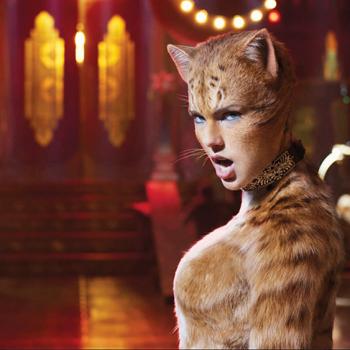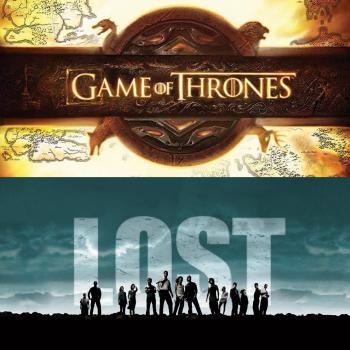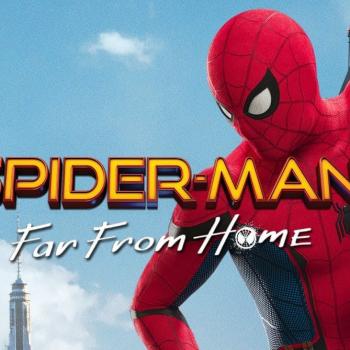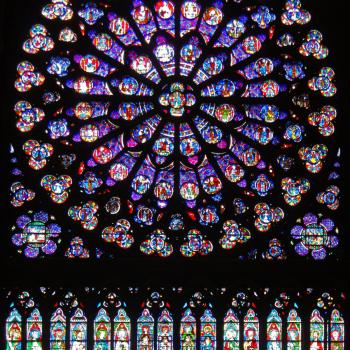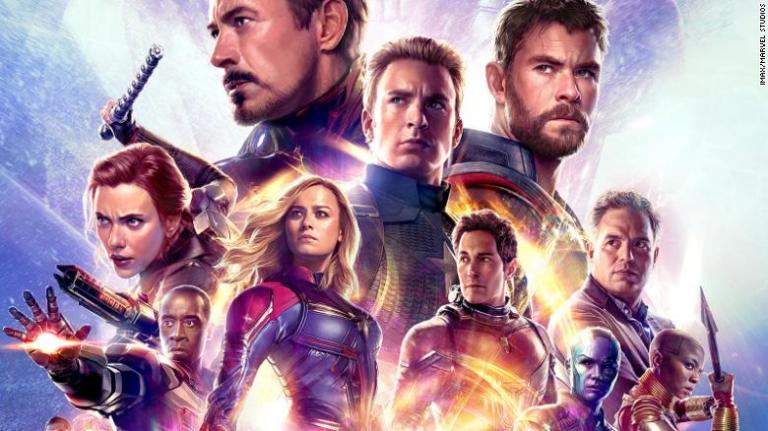
WARNING: SPOILERS.
So many spoilers.
All the spoilers.
Seriously: I mean it.
Spoiled.
Utterly and totally spoiled. Like fruit: spoiled. So much of the spoiling.
Last chance!
No turning back!
Stop right now!
Well…you were warned.
What do we think about Endgame?
Last night, I had the chance to see the latest in the Marvel franchise, the conclusion to the story built from the original Avengers (heck, since Iron Man) through to even more obscure pieces of the puzzle such as last summer’s Ant Man and the Wasp.
Readers of this blog will know that I absolutely loved Infinity War, which seemed – along with Black Panther – to turn a corner towards deeper, more richly philosophic undertones through superhero story telling. Hence, I went into Endgame with somewhat bated breath, hoping the MCU would be able to carry through the allegory of our modern myths into a satisfying conclusion.
However, I was a little concerned that my hopes would be thwarted, given that not a single person on my social media managed to spoil anything about the movie. With Infinity War, people were simply bursting – posting their emotional responses, even if they didn’t mention specific plot points. Heck, even with the most recent Game of Thrones episode, as soon as I walked into the class I teach on playwriting, every single one of my students burst out with spoilers about the War of Winterfell.
Great art demands immediate conversation. Great art creates immediate connection.
Very good art? Well, very good art we can keep spoiler free, because it doesn’t brim over in our souls.
Avengers: Endgame is very good art.
Which isn’t bad. But I wish it had been great.
The Importance of Ethics
As I’ve mentioned elsewhere, the overall franchise of the MCU, particularly the Avenger/Captain America tentpole movies for this first phase of “the most expensive television programming ever,” seems to follow a classic five-act structure:
- Act One: Introduce Your World (see every origin movie)
- Act Two: Run Your Characters Up A Tree (Avengers – where our team finally assembles)
- Act Three: Set the Tree on Fire (Age of Ultron, Winter Soldier – culminating in Civil War – where our heroes battle each other)
- Act Four: Inversion, Turn the World Upside Down (Infinity War, which literally follows the antihero’s journey of Thanos)
- Act Five: Cling to the Burning World to Your Damnation, or Surrender the World to Your Salvation (Endgame)
The five-act structure is about the end of worlds: from highly personal stakes to the fate of the cosmos.
However, the only way to truly earn the catharsis a great five act drama can provide is if you know what philosophical statement you’re pursuing. For better or worse, one of the things that Joss Whedon insisted on building into the framework of his early Avengers movies was the importance of the everyday. That these are men becoming gods…but still inherently interested in the salvation of the small things.
Endgame continues this saving grace somewhat: taking the time to show the intimate family moments with Hawkeye; the grief of Thor; the graves to the vanished; the importance of former playboy Tony now fighting both for his young daughter and for his surrogate son, Peter Parker.
The quietness and sense of space in the first act of the movie was a bold choice, particularly in a superhero film, and I applaud it. (Even if it did feel like the movie took a while to get going, and I kept wishing we could have a whole season of hour long episodes instead.)
But what that first act lacked was the articulation of a philosophic principle.
Why were Civil War or Black Panther so great? Because the action was allegory played out with high stakes and spandex about the moral choices that govern society. We had journeyed with Cap and Tony Stark over whether it was an ethical good for power to reside with individuals or in the hands of the government. While Black Panther asked a similar question, furthering it with the Good Place question: “What do we owe each other?”
In Infinity War this question, so central to the Marvel Universe (“with great power comes great responsibility”), was answered in the most horrific means possible as Thanos argued for the impersonal annihilation of half the universe’s population for “the greater good.” His quest to achieve the greatest power to use with his twisted view of responsibility caused viewers to watch with dread, to mentally formulate arguments against Thanos’ almost sorrowful view of perverted “mercy,” to fight with our heroes against the inevitability of evil using the rhetoric of good against goodness itself. We were confronted with the question: “What happens when we are faced with the long defeat? Why keep fighting, when we are almost sure to fail?”
Unfortunately…Endgame did not continue these questions.
Catharsis vs. Checklists
What Endgame did do, sometimes brilliantly, in several places to lovely emotional effect, was to wrap up and reflect upon what came before. We got satisfying endings for many of our heroes – especially our two pillars of Tony Stark and Captain America (tell me you didn’t cry at either of their endings) – as well as satisfying beginnings for the next phase of the MCU.
We got to see alternative versions of our favorite (or not so favorite) MCU movies. (Although I maintain that I, for one, was thrilled to return to The Dark World, which I think is fairly underrated.) We got wibbily-wobbily-timey-wimey stuff that managed to get fan favorites back on our screens, as well as the sight of people fighting themselves.
We got all the women fighting in a badass way. (Is it strange that I wanted Wonder Woman to join the female fray? DCU be damned.)
But what we did not get was any sort of cohesion. No sense of what we were fighting for in an intellectual or spiritual sense.
The first act with its mournful silences was beautiful. But it was also long. Why? Because while each actor was internalizing their own feelings of guilt, sorrow, etc. they did not express what that guilt, sorrow, etc. was doing to them. Where was a speech, no matter how short, about what it meant to fail and keep fighting? Or the pain of continuing to live? Or any number of themes the Plot Thus Far could lead us to?
We had a little nod to that with Cap saying that we ought to keep living. And Tony’s insistence on not losing the good he’d gotten because of the decimation was poignant. But the MCU audience has grown up by now. We can handle deeper themes. We nearly gave an Oscar to Black Panther!
Act V of any great drama is when we want our speeches reflecting on the point of life and death and everything inbetween.
Where was my “There is a certain providence in the fall of every sparrow?” from Hamlet? Or “Tomorrow and tomorrow and tomorrow” from Macbeth? The grief-riddled Thor tried to act beyond the jokes some sort of Richard II: “Come, let us sit upon the ground and tell sad stories of the death of kings.” But none of this was written out; none of it spoken; none of it said.
Steven Greydanus pointed out at the National Catholic Register that with all this death, there was precious little talk of God. Not even from Steve Rogers. Not a variety of sitting shiva, clutching beads, or even asking whether there is a God of Peter Parker when he simply “woke up” after five years not in the quantum zone?
When everyone appeared (inevitably) through the portals for the final fight, I wanted to have the shiver of the end of the Battle of Helm’s Deep in The Two Towers, but instead of catharsis it felt like a checklist. Real catharsis comes from the inevitable we struggle against, or refuse to look at while it marches towards us, or refuse to believe despite assurances that Hope will come…but a checklist is: “Oh, are you alive again? Well, I knew you were coming. You’ve got a sequel next month.”
So, the problem of lifting Endgame from good to great is one of philosophy. SAY SOMETHING. Have an opinion about Life, the Universe and Everything. Don’t believe in God? Say so. Fear death? Say so. Sure there’s something good in this world, and it’s worth fighting for? Say. So.
This is what makes great art. More than plot, more than character, more than some truly spectacular CGI, and the occasional warm-hearted moment:
Have something to say. And say it loudly and with all the fire in your heart.
Especially at the end of a franchise era.
But enough of my griping. Because, for all that I wanted more, Endgame also gave us a whole hella lot.
All The Good Stuff (and Some Baffling)
In no particular order, allow me to list some things that utterly delighted (or baffled) me about Endgame. Feel free to add your own thoughts in the comments below!
- Loki. Man. Loki. Also, easiest memorizing gig ever, Mr. Hiddleston. I think you had, what, two lines? I will say that I’d rather hoped that the god of Mischief might be used to help reverse the deaths, showing up with a “Ta daaaa” or “Surprise,” but I’ll take his quizzical eyebrows as he watches our heroes’ shenanigans to get the tesseract back.
- Thor. Chris Hemsworth is often at his best when he’s allowed to be comedic (Hello, Thor: Ragnarok), and it was kind of great to see him absolutely a Luther-like mess in this movie. (Also, impressively Nordic braided beard, dude!) I was particularly moved and would have liked a bit more about the constant losses he, of all the Avengers assembled.
- Hulk Banner. The CGI. The CGI. Holy cow, how far we’ve come in two decades. Some pretty impressive deaging effects, of course, but Mark Ruffalo’s performance as rendered by the animators was jaw-dropping.
- When all the women fought. I was semi-spoiled about this moment before going in, so it’s a testimony to Just How Cool It Is to see all the women kicking ass as a team (also, someone get me Valkyrie’s horse STAT). I can’t quite articulate why this was so thrilling. It was rather like the first third of Wonder Woman. (Ahem, can we please just have a movie of Amazons doing cool horse tricks and shooting arrows at rocks and things? I would pay you money. No, no plot, thank you. Just awesome women being awesome. Thanks!) It was…well, we just don’t get to see stuff like that. And I fully admit I shouted: “YAAAAS!” and held my hands in front of my mouth like a little kid that just discovered Christmas.
- Captain Freaking America. Cap’s just my favorite, because who doesn’t love an upright man. But…oh my stars. Mjolnir. MJOLNIR! MJOLNIR COMING TO CAP BECAUSE DAMMIT YES. I wasn’t sure whether to laugh or cheer or clap or start sobbing. I think I did all the things. Certainly, the audience started shouting and losing our minds. This is how you pay off something from a dozen movies ago.
- “You can let go, Tony.” Whaaaaaaaa?!??! First, props to Robert Downey, Jr. for anchoring this series for so long. Just as one entertainer to another, I was like: “Oh, sweetie! You get to retire from the Mouse House! I’m so proud of you!” So, “You can let go” worked on so many levels. Yes, well done, good and faithful servant. Sob sob sob. That, too, is payoff.
And a few baffling things:
- Wibbily-wobbily-timey-wimey doesn’t even cover it. Argue all you want that the past is fixed…I have trouble buying it. I kept wondering, such as when Nebula killed her younger self, why is future Nebula still alive, then? Similarly, Loki disappeared the year prior with the tesseract, so how is he imprisoned for the Dark World flashback? I’m not typically the type of person who sees every plot hole, but when you can drive a semi-truck through them, you might want to recheck your story quantum physics.
- Don’t hinge everything on Hawkeye. I know poor Hawkeye has been the brunt of many a fan’s ire, but whether the character is inherently weak, or whether poor Jeremy Renner simply isn’t as dynamic as, oh, Stephen Amell over on Arrow in the small screen DC Arrowverse, the MCU’s version of Hawkeye is simply not the person to hinge personal stakes upon. Age of Ultron, which has more than its fair share of problems, tried to make Hawkeye “the heart” of the Avengers, when Phil Coulson in what amounted to a cameo had done a better job in the movie before. Similarly, Endgame kept trying to make the proverbial fetch happen by, shocker!, killing Black Widow and letting Hawkeye live. While I absolutely believe that Black Widow could best Hawkeye in a battle to their individual deaths, once she was gone all I could think was: “Aw, shit. Now we’re stuck with Hawkeye.” (They also have not been using Scarlett Johansson to her full advantage for years now. C’mon, writers. Be better.)
- I know I should like Captain Marvel…but I’m just not digging her. I mean, I dig her new haircut. I dig Brie Larson. I dig this super powerful woman. But she’s just not…I dunno. She’s too powerful? They use her like a plot device? Where was her cat? I want humans, not icons.
- WHO WAS MAKING ALL THE AVENGER SUITS IF MOST EVERYONE IS DEAD OR DEPRESSED?!??! Along those lines, shouldn’t there have been a baby boom? Or looting? Or the rise of a dictator? I appreciate there was a nod to composting, living more simply, etc. after the snap. But also: five years after 9-11, like, Life Has To Keep Going. I guess there was an opportunity there to show the people refusing to think any more about who they lost, vs. people who couldn’t give up the past. There was so much worldbuilding, and I frankly wanted a few seasons of TV rather than forty minutes for Act I.
- So…do we have overpopulation again? How much of a threat was it to begin with? How did they know how to use the stones? How are people who were grieving now going to move on with everything restored? How do you explain to ALL THE COMMON PEOPLE WHAT THE HELL JUST HAPPENED? How does this shift the economy or jobs? What did the formerly vanish experience? Did Dr. Strange appear to everyone’s consciousness with a quick wiki-download? Will people start worshiping Dr. Strange now? Where are the trauma counselors?
- If the past is immutable…how did Cap mute it? Are we in an alternative timeline now because he went to be with his one true love? How can Cap change the timeline, but Nebula dying early still left Nebula alive?
And finally…
- So…Is Loki alive or not?
Agree? Disagree? Have a theory about where the MCU goes from here? Sound off in the comments below!
Photo courtesy of Marvel Studios.



